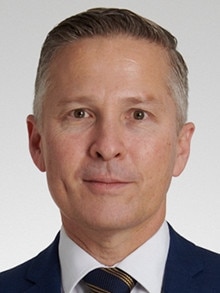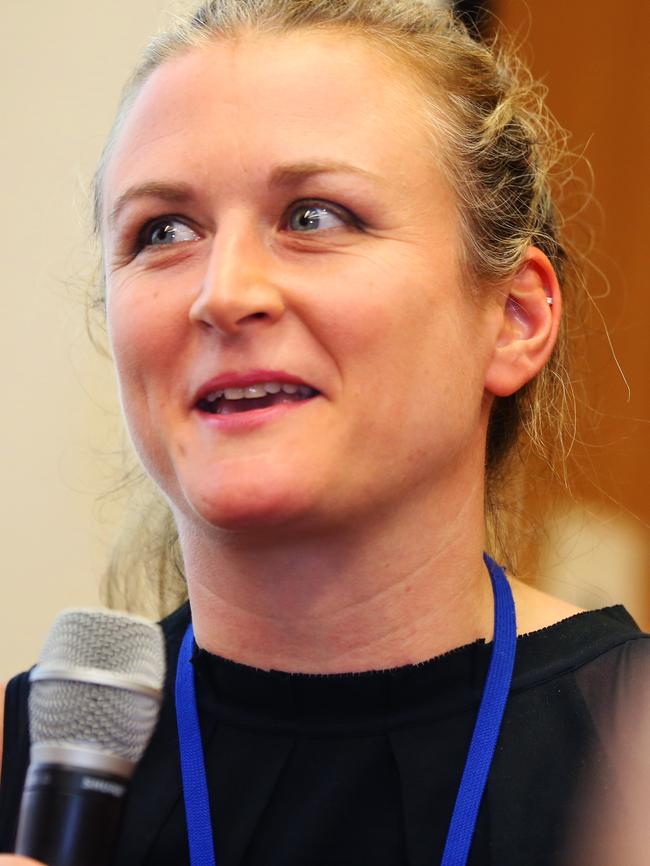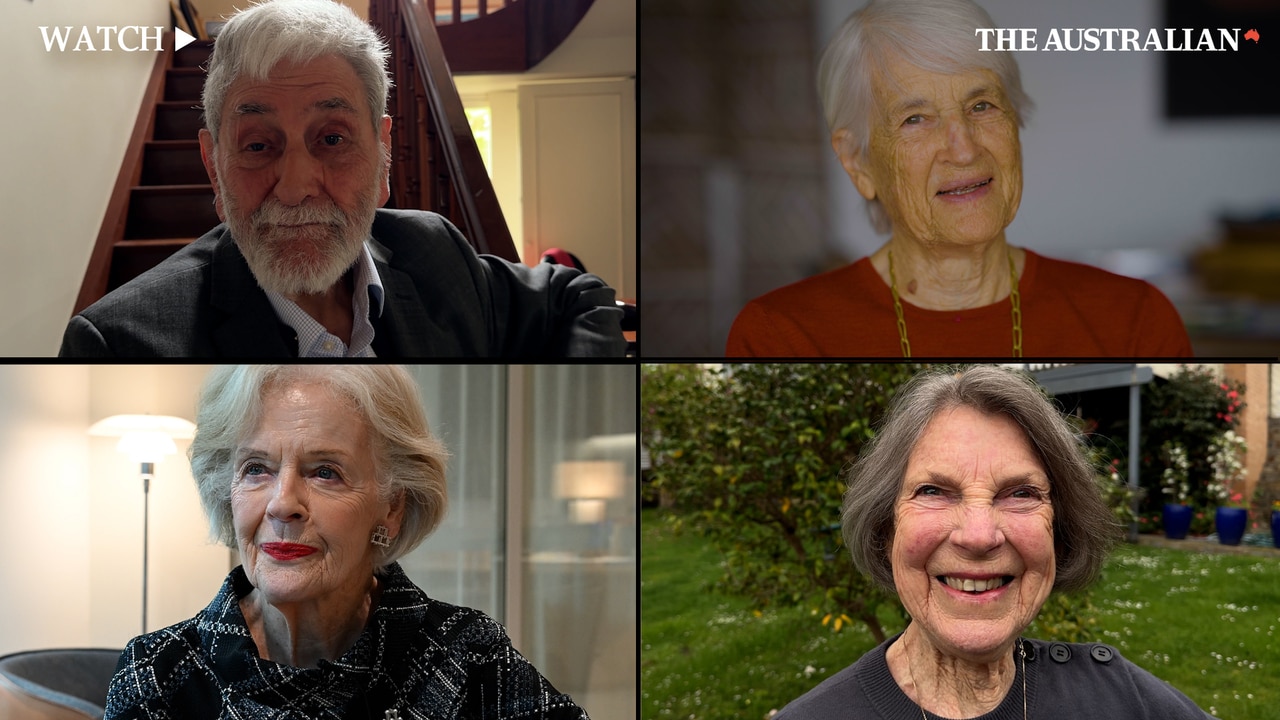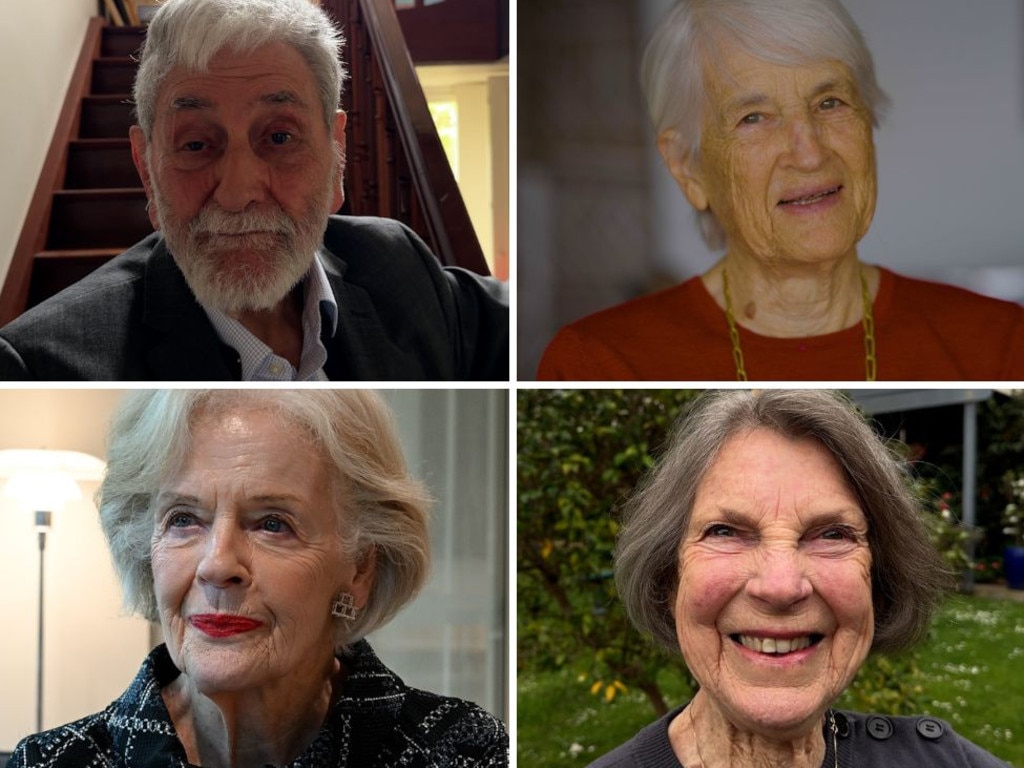Beyond the expected, doctors give keys to ageing well
Be social, find a GP you get along with, and keep an eye on the future. Experts weigh in on how to put preventive health principles into practice.

Are there habits or attitudes we can adopt to put us on a better path to prevent the worst aspects of ageing?
Some scientists say personal rigour, less stress and more social connections have the potential to help you live better for longer.
With rising public interest in quality ageing, understanding your own path to staving off poor health means focusing on what you can – and what you can’t – change to achieve a better outcome.
Telomeres and their impact on ageing
Australian geneticist and Nobel prize-winner Elizabeth Blackburn’s discovery of telomeres and their relationship to DNA in the early 1980s was a breakthrough in understanding cellular division and therefore the factors affecting ageing.
Acting as protective “caps” upon the extremities of chromosomes, telomeres are responsible for regulating cell division and protecting DNA from deteriorating. As they shorten through a lifespan, the body becomes more prone to disease.
Think about those aglets, the little plastic tubes keeping the end of your shoelaces under control. They hardly bear thinking about, yet are vital to the overall product.
Understanding how telomeres work, and deteriorate, may be vital to determining how to live more healthily into one’s older years.
In a 2012 paper published in the journal Nature, Professor Blackburn and fellow author Elissa S. Epel said “researchers have consistently found that various types of chronic stress are linked to – and probably cause – shorter telomeres”.
Shorter telomeres and stress have been independently associated with conditions such as cardiovascular disease and diabetes.
“These associations are so widespread and consistent that even without a detailed understanding of the biochemical pathways involved, the message is clear,” they said.
“Failure to alleviate severe stress caused by prolonged threats such as war, financial hardship, abuse and emotional neglect, particularly in children, will result in exponentially higher costs further down the line – personal, economic and otherwise.”
But is there anything you can do to protect your telomeres?
Head of the Telomere Length Regulation Unit at the Children’s Medical Research Institute, Hilda Pickett, is one of the nation’s foremost experts on telomere manipulation.
“There is progress here. More accurate techniques to measure telomere length, and tools to manipulate them, are emerging and being tested,” Professor Pickett said.
“Telomeres regulate cell proliferation. Prolonging cellular proliferation has the potential to increase the regenerative capacity of stem cells – which would have huge benefits for health in an ageing population.
“(It can be applied) when there is a way to safely manipulate or extend telomere lengths without tumorigenic escape.”
Cancer cells have the ability to replicate and grow without bounds, and telomere researchers fear that pushing the length on our own cells would make them artificially cancerous, or tumorigenic.
“Longer-term understanding of whether these tools promote tumorigenic escape is needed to fully understand lifespan health,” Professor Pickett said.
“Cancer cells are proliferatively immortal and have lost the regulatory limits required for a finite replicative lifespan. So, if we want to see any benefits to the ageing population, we need to ensure that by increasing telomere length and prolonging cellular lifespan, cells do not escape these limits and become tumorigenic.”
What you can do
Relying on the scientists to keep your telomeres long won’t do it all in terms of prevention. A 2020 Nature study found genes determined only 10 to 15 per cent of later life outcomes.
Scientific debate is rife on how to keep those unhealthy years at the end of life to a minimum. In developed countries the average is about 10 years spent in poor health at the end of life, with the aim being “compression of morbidity” – to suffer major illness later in life and for as short a period as possible.
Newly elected president for the Royal Australian College of GPs Michael Wright gave his tips to squeezing the most out of your annual check-up, with continuity of care topping the list.
“There is no substitute for having a GP who knows you and your history,” Dr Wright said. “The best advice is to try and find a GP who you get along with, and try and see them where possible, particularly for this prevention and proactive care.
“Studies from around the world have shown that patients with a regular GP have healthier lives and live longer. The benefits grow the longer you are with the same GP.
“Your GP, and often the practice nurse, can help you work out if you need any tests, or need to take any action.”
The RACGP produces GP guidelines which tell clinicians what to test for through a patient’s lifetime.
“These guidelines vary as we age: for kids, a check might involve ensuring healthy weight and diet, and maybe updating vaccines; for young adults checking alcohol use or stress levels; while for an older person this might involve more things – having your blood pressure checked, blood tests to check for high cholesterol or diabetes, and even having tests like a mammogram to check for breast cancer,” Dr Wright said.
“Health promotion and prevention is at the heart of care that GPs provide.”


Can you organise a healthier life?
We all know the basics: sleeping better, stressing less, exercising more, and keeping a Mediterranean diet. But many other less-discussed factors are at play in preventing illness in old age.
Personal rigour is a litmus test. A University of Michigan study following children into adulthood found those who display persistence and organisation will live 11 per cent longer.
A nicer life is also likely to be a longer one. If you have at least three strong social ties you reduce your risk of early death by more than 200 per cent, while being happy will generally mean you live 18 per cent longer.
Finally, when facing the prospect of aged care, a focus on preventive health becomes critical. Research by the South Australian Registry of Senior Australians found those who had regular check-ups and took measures to prevent sickness enjoyed better quality of life than those who opted to take semi-regular GP appointments or handle health problems as they arose.
Can social and environmental factors prevent a long life?
UTS epidemiologist Ying Zhang studies the impact of climate change on health. She warned older Australians were at a particular risk, despite the predominant focus on climate change’s impacts to young people and future generations.
“The impacts on society are far-reaching. This is not just a problem for the poor, rural regions or animals. People in developed countries also die due to more frequent climate disasters,” Professor Zhang said.

“Having said that, the impact of environmental deterioration and rapid globalisation and urbanisation are not distributed evenly across populations, regions, or social groups.
“Older people are at higher risks of these changes but many of them do not perceive the risks themselves, leading to lower adaptive capacity.”
Professor Zhang said advances in technology and social structures would cause elderly people in the future to enter later life in fundamentally different ways.
“The experience of ageing has dramatically shifted due to differences in access to healthcare, technology, social structures, and lifestyle choices. We live longer, with smaller family units, greater intergenerational gaps, and a more globalised world,” she said.
“Social expectations of the older population have also shifted. However, at its core the experience of ageing still depends on connections with people, the environment, and social support.
“I have seen how new technologies have saved lives and significantly improved the quality of life for patients, in ways that have never been possible in human history. However, every coin has two sides. If we fail to use technology wisely, it can exacerbate conflicts, especially when our biological and social development struggles to keep pace with technological advancements.”
Despite numerous emerging risks such as forever chemicals, microplastics and disease, Professor Zhang said she was “optimistic” ageing would be a less arduous affair in the future.





To join the conversation, please log in. Don't have an account? Register
Join the conversation, you are commenting as Logout